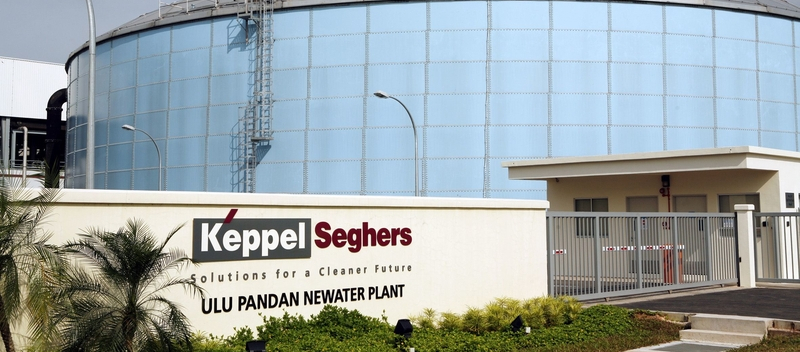Lost World is a powerful short documentary that details the effects of Singapore’s sand mining operations in Cambodia, not just on the land but to the villagers as well.
Directed by Kalyanee Mam with support and funding from the John D and Catherine T MacArthur Foundation, the documentary evokes the pain of losing not only land but a way of life seen through the eyes of a young Cambodian islander, Vy Phalla who has dedicated her life to speaking out against sand dredging.
Lost World shows the magnificence of Cambodia’s vast mangrove forests invaded by monstrous vessels digging up sand to be sent to Singapore. The elders in Vy Phalla’s village are seen talking about the destructiveness of this dredging and how it has altered their way of live. The women lament about how they used to be able to fish near their houses by the water. They were able to provide for themselves from the rich resources of the mangroves. But ever since the mining started, ‘no more islands’ and ‘no more crabs’.
Vy Phalla also points out how the ships started by taking only white sand but now, they’re also taking black sand right at the bottom as well. These companies dredge wherever there’s sand, even inside the mangroves and along the coastlines and estuaries. ‘They’re not leaving anything’, says Vy.
Another woman chimes to described how villagers who attempt to chase these ships away are threatened with jail. ‘The More we chase and beg them, the more they step all over us’, she says.
At the end of the film, Vy visits Singapore for the first time. She explored Garden’s by The Bay, taking in the man-made beauty and watching as other visitors marvel at ‘nature’. The whole time, her indignation is profound.
Vy says, “When I see all the people walking, I want to tell them this land is my land. This land is from my country. But I can’t express this because I don’t speak their language and I don’t know what to do so that they will understand. I can only grieve for the land. I don’t know what else I can do.”
She goes on to describe how land is a part of her identity, part of her people’s identity. Without it, they are a people ‘without beliefs, without a present or a future, like refugees without a true homeland’.
Singapore has become the world’s largest importer of sand, having imported over 80 million tons of sand so far. In 2007, the Cambodian government granted concessions to several private companies to mine sand from the country’s coastal mangrove forests.
The project has damaged coastlines in the region, displacing those who live and work on the land and destroying a valuable natural barrier against erosion, rising sea levels, tsunamis and hurricanes. Countries like Malaysia, Vietnam and Indonesia have all since banned sand dredging for export due to environmental concerns but in Cambodia, the trade is booming.
In fact, the government supposedly banned sand dredging back in May 2009 but there are boats still turning up and dredging sand, often in protected areas with no local consultation according to a report by Global Witness.
George Boden, campaigner at Global Witness highlighted, “Singapore says that the import of sand is a purely commercial activity but it also presents itself as a regional leader on environmental issues. The country’s failure to mitigate the social and ecological cost of sand dredging represents hypocrisy on a grand scale. If Singapore wants its environmental stance to be taken seriously, monitoring where the sand is sourced and what is being done to obtain it would be an obvious place to start.”
In Lost World, Vy said, “The law has given us all kinds of freedom. Here we only have the right to sit, shed tears and witness the destruction of our grandchildren’s home, our village and our way of life.”
Watch the documentary here:
Also read: Govt downplays large gap of sand import and export of Cambodia and Singapore
According to trade data sent by both countries to the United Nation Database of Commodity Trade Statistics, Singapore has about 70 million tons of sand arriving from Cambodia compared to 6 million tons Cambodia reported sending there from 2007 to 2016.
Environmental groups and even the Cambodian government speculate because of the gap, that the island was involved in bringing in smuggled sand from Cambodia or elsewhere to support its land-building projects.










